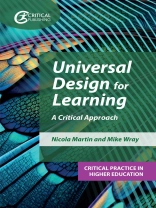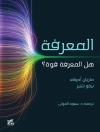This book delves into the underpinning principles of Universal Design for Learning (UDL) which is all about delivering an inclusive teaching and learning experience from the start rather than adapting existing programmes to new student needs.
As part of the Critical Practice in Higher Education series, this book focuses on the principles of UDL and how they should underpin thinking in embedding inclusive practice.
Ultimately, this book translates the principle of UDL into research-informed inclusive practice. It focuses on theory and research which looks at UDL inter-sectionally and from the perspectives of various marginalised groups including, but not limited to, categories protected by the Equality Act 2010. Readers are continually tasked to ask themselves whether their practice is inclusive, to consider why inclusion is important and relate this thinking to notions of social justice in higher education. It provides a critically reflective space where readers are invited to consider a more nuanced understanding of teaching and learning which celebrates and accommodates diversity.
Daftar Isi
Introduction
Tentang Penulis
Karen Mpamhanga (formerly Karen Smith) is Professor of Higher Education and Professional Learning in the School of Education at the University of Hertfordshire. Her research focuses on how higher education policies and practices impact on those who work and study within universities. Karen has worked within educational development and on lecturer development programmes. She holds a Principal Fellowship of the Higher Education Academy and is currently the Director of the University of Hertfordshire’s Professional Doctorate in Education. Karen also leads collaborative research and development in her School, where she engages in externally funded research and evaluation and supports the development of scholarly educational practice through practitioner research.












